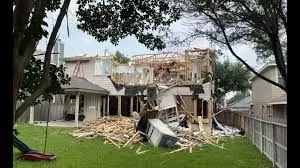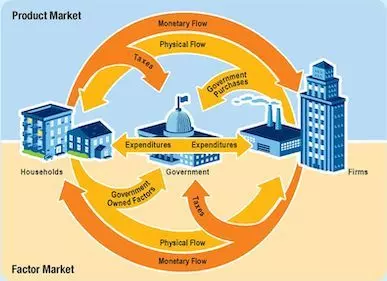Understanding Property Taxes and Insurance: A Guide for Homeowners

Understanding Property Taxes and Insurance: A Guide for Homeowners
Owning a home is a major achievement, but it comes with a learning curve—especially when it comes to understanding property taxes and homeowners insurance. If you’re a homeowner in North America, this expanded guide will help you master these important topics, answer your questions, and even help you save money along the way.
What Are Property Taxes? (Explained for Homeowners)
Property taxes are annual fees paid to your local government, based on your home’s assessed value. These taxes fund vital community services like schools, emergency services, parks, and infrastructure. Knowing how property taxes work can help you budget wisely and even uncover ways to lower your bill.
How Are Property Taxes Assessed?
- Assessment: A local tax assessor estimates your home’s market value based on neighborhood sales, improvements, and property condition.
- Tax Rate: Each city or county sets a specific tax rate (the mill rate).
- Calculation: Assessed Value × Tax Rate = Property Tax Owed
For example, if your home is worth $350,000 and your area’s tax rate is 1.1%, you’d pay $3,850 per year.
Can You Appeal Your Property Tax Assessment?
Yes! If you believe your home’s assessed value is too high, you can file an appeal with your local tax authority. Gather evidence like recent sales of similar homes, photos of needed repairs, or a private appraisal to support your case. Many homeowners are surprised to learn they can reduce their tax bill this way.
Common Property Tax Exemptions
- Homestead Exemption: Reduces taxes for primary residences.
- Senior Citizen Exemption: Offers relief for older homeowners.
- Veteran Exemption: Available for qualifying military veterans.
Check with your local tax office to see what exemptions you might qualify for—they can make a big difference!
Homeowners Insurance: What You Need to Know
Homeowners insurance is your safety net, protecting your home and belongings from unexpected disasters like fire, theft, or severe weather. Most lenders require it, but even if your home is paid off, insurance is crucial for peace of mind.
Types of Homeowners Insurance Policies
- HO-3 Policy: The most common, covering your home and belongings against many risks except those specifically excluded.
- HO-5 Policy: Offers broader coverage, protecting more types of personal property and often with higher limits.
- HO-1/HO-2 Policies: Basic policies with limited coverage—less common today.
Pro Tip: Standard policies usually don’t cover floods or earthquakes. Ask your agent about additional coverage if you live in a risk-prone area.
What Does Homeowners Insurance Cover?
- Dwelling Coverage: Repairs or rebuilds your home after damage.
- Personal Property: Protects your belongings from theft or loss.
- Liability Protection: Covers legal costs if someone is injured on your property.
- Additional Living Expenses: Pays for temporary housing if your home is unlivable.
How Much Insurance Do You Need?
Make sure your coverage is enough to rebuild your home at current construction costs—not just the price you paid. Update your policy if you renovate or make major purchases. An annual review with your agent keeps you protected and avoids surprises.
Frequently Asked Questions
Property Taxes
- Q: Can my property taxes go up every year?
A: Yes, if your home’s assessed value increases or if your local government raises the tax rate. - Q: What happens if I don’t pay my property taxes?
A: Unpaid taxes can lead to penalties, liens, or even foreclosure. Always budget for this annual expense.
Homeowners Insurance
- Q: Does insurance cover my belongings outside the house?
A: Many policies cover personal property even when you’re traveling—check your policy for details. - Q: Will making a claim increase my premium?
A: It’s possible. Ask your agent to explain how claims may affect your rates.
Smart Money-Saving Strategies
- Bundle Policies: Combine home and auto insurance for discounts.
- Improve Home Security: Installing alarms or smart locks can lower insurance premiums.
- Appeal Assessments: Don’t hesitate to challenge an overestimated property value.
- Claim Exemptions: Apply for every property tax exemption you qualify for.
New Homeowner Checklist
- Review your property tax assessment notice as soon as you receive it.
- Ask about local tax exemptions and apply right away.
- Shop for homeowners insurance and compare at least three quotes.
- Read your insurance policy carefully—know your coverage and exclusions.
- Set up a monthly savings plan to cover annual taxes and insurance.
- Schedule an annual review of your policy and tax assessment.
Real-Life Scenario: Meet the Johnsons
The Johnson family bought their first home last year. When their property tax bill arrived, they noticed the assessed value seemed high. After researching recent sales in their neighborhood, they appealed the assessment—and won, saving $600 a year! They also bundled their home and auto insurance, added a security system, and now enjoy lower premiums. Their story shows how a little knowledge and action can lead to big savings.
Final Thoughts: Stay Informed and Protected
Learning about property taxes and homeowners insurance is one of the smartest moves you can make as a homeowner. By staying proactive, asking questions, and reviewing your options every year, you can save money and avoid costly surprises. If you’re ever unsure, connect with a local real estate expert or insurance professional—they’re there to help you every step of the way.
Categories
Recent Posts











